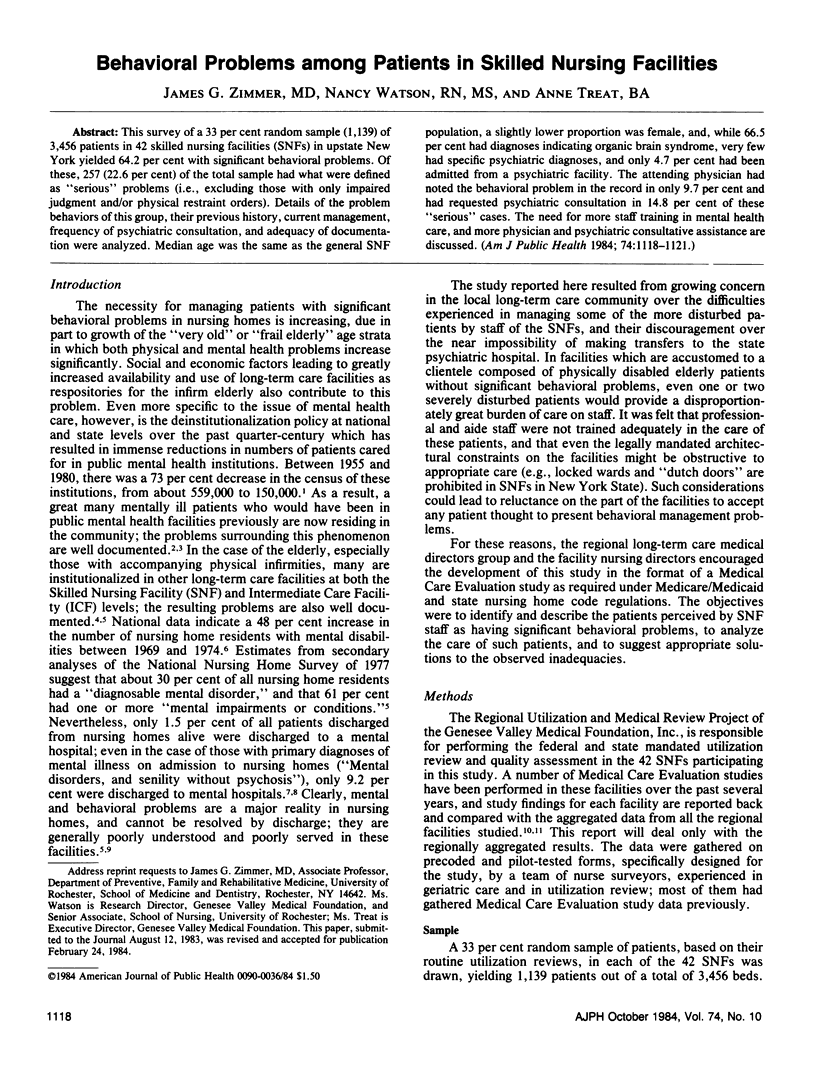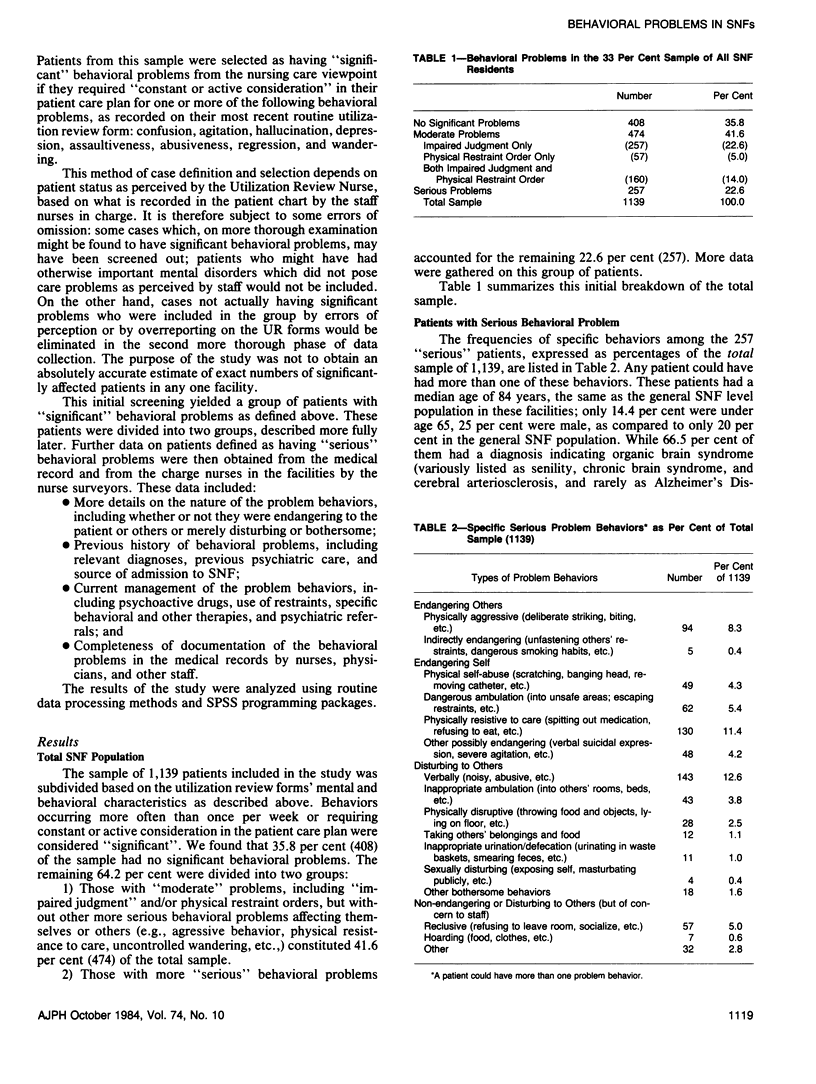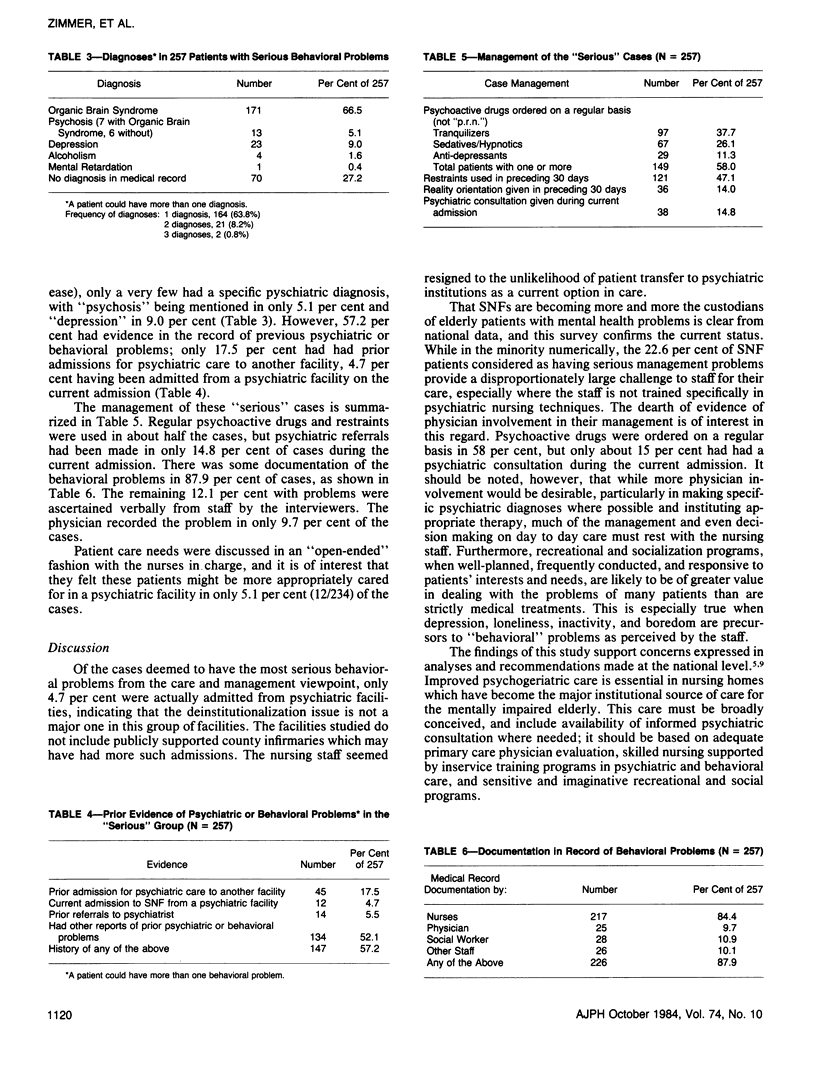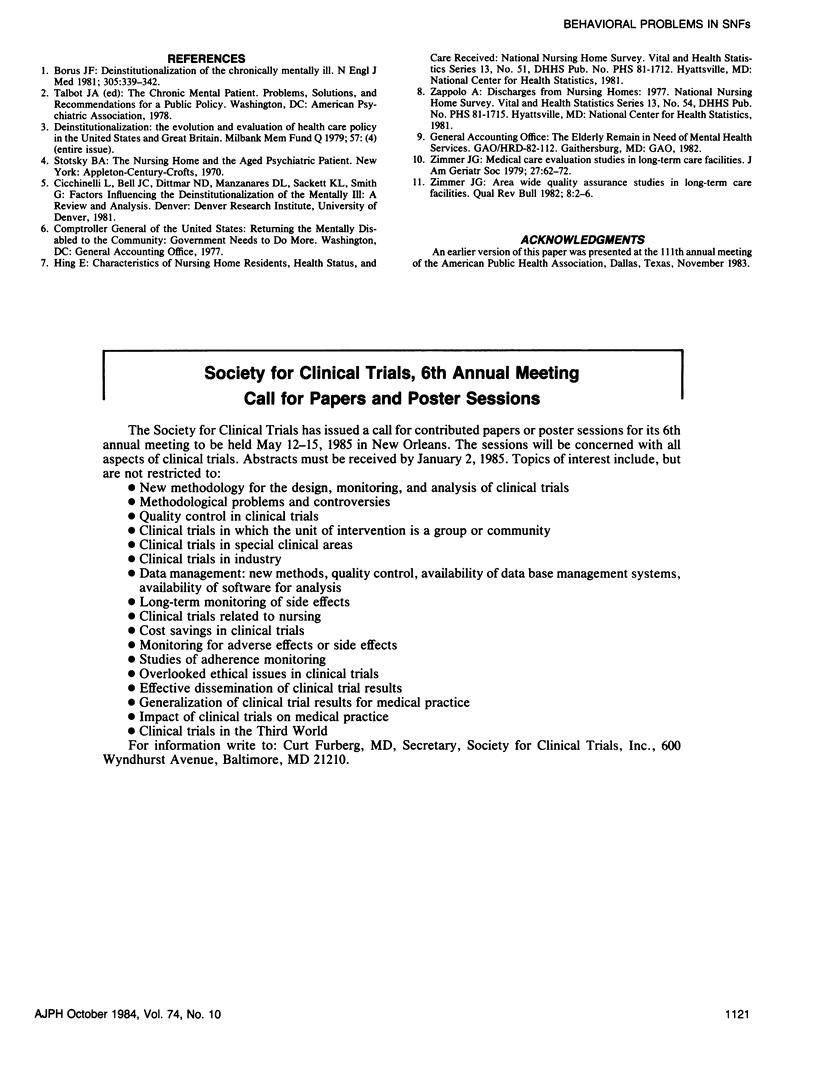Abstract
This survey of a 33 per cent random sample (1,139) of 3,456 patients in 42 skilled nursing facilities (SNFs) in upstate New York yielded 64.2 per cent with significant behavioral problems. Of these, 257 (22.6 per cent) of the total sample had what were defined as "serious" problems (i.e., excluding those with only impaired judgment and/or physical restraint orders). Details of the problem behaviors of this group, their previous history, current management, frequency of psychiatric consultation, and adequacy of documentation were analyzed. Median age was the same as the general SNF population, a slightly lower proportion was female, and, while 66.5 per cent had diagnoses indicating organic brain syndrome, very few had specific psychiatric diagnoses, and only 4.7 per cent had been admitted from a psychiatric facility. The attending physician had noted the behavioral problem in the record in only 9.7 per cent and had requested psychiatric consultation in 14.8 per cent of these "serious" cases. The need for more staff training in mental health care, and more physician and psychiatric consultative assistance are discussed.
Full text
PDF



Selected References
These references are in PubMed. This may not be the complete list of references from this article.
- Borus J. F. Sounding Board. Deinstitutionalization of the chronically mentally ill. N Engl J Med. 1981 Aug 6;305(6):339–342. doi: 10.1056/NEJM198108063050609. [DOI] [PubMed] [Google Scholar]
- Zimmer J. G. Areawide quality assurance studies in long term care facilities. QRB Qual Rev Bull. 1982 Jul;8(7):2–6. [PubMed] [Google Scholar]
- Zimmer J. G. Medical care evaluation studies in long-term care facilities. J Am Geriatr Soc. 1979 Feb;27(2):62–72. doi: 10.1111/j.1532-5415.1979.tb03343.x. [DOI] [PubMed] [Google Scholar]


